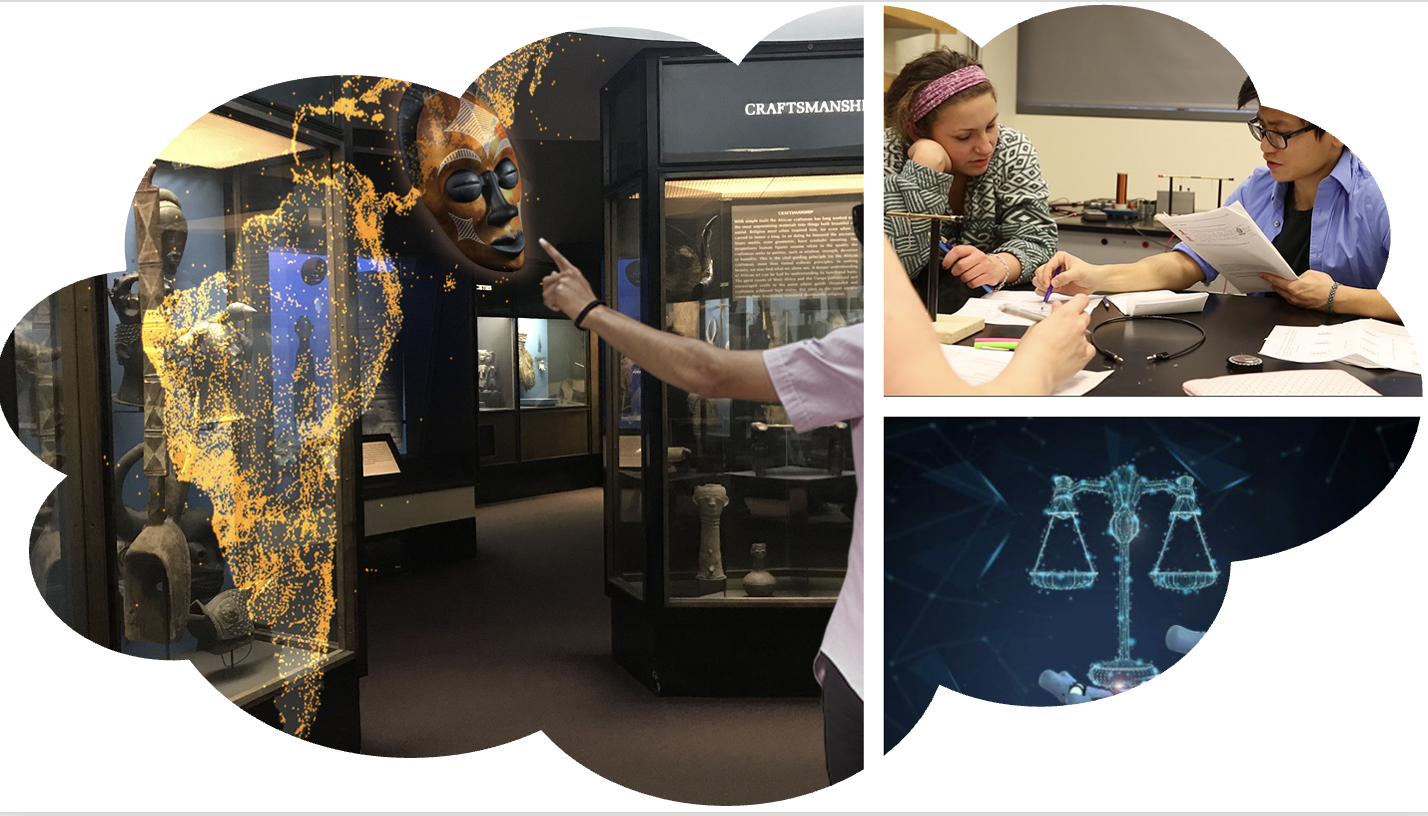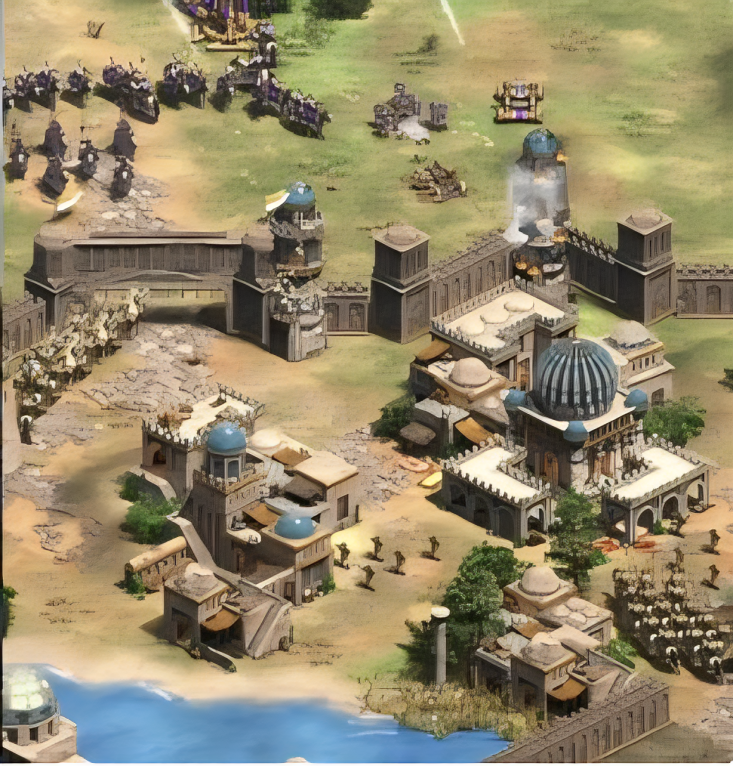Authentic Assessment

Getting Started
One of the most impactful things you can do to increase the value and relevance of the way students are assessed is to introduce elements of authenticity. In brief, assessments can be described as authentic when they mirror activities that students may encounter in future employment settings.
This page has been structured to give you quick access to ideas and inspiration, and is divided into the following sections:
The principles of authentic assessment
The benefits of authentic assessment
Four considerations in creating authenticity in assessment
Learning design and authentic assessment
Authentic assessment case studies and inspiration
The Principles of Authentic Assessment
In addition to providing authentic contexts that reflect the way that knowledge will be used in real life, and providing authentic tasks and activities, Harrington et al. (2014) suggest that authentic assessment will:
- Provide access to expert performances
- Provide multiple roles and perspectives
- Support collaborative construction of knowledge
- Promote reflection to enable abstractions to be formed
- Promote articulation to enable tacit knowledge to be made explicit
- Provide coaching and scaffolding
These principles prompt us to consider group work (see Teamwork), reflective tasks, and the involvement of external stakeholders.
The benefits of authentic assessment
- Making assessment more authentic encourages students to engage more with assessment and for them to develop a greater skill set than more traditional methods
- They can meet the demands of external stakeholders such as industry and the professional bodies for higher education to offer more relevant courses and enhance graduate employability including the development of transferable skills
- Overall, they show clear alignment between the desired learning outcomes, content of the curriculum and future career-based knowledge and awareness e.g. an authentic assessment for an engineering course would demonstrate a student’s ability to think and problem solve in ways that resemble how experts in the engineering field would think and act
- Assessment that reflects how students can or will use disciplinary knowledge, or ‘authentic assessment’ can help in ‘designing out’ plagiarism.
Four considerations in creating authenticity in assessment
Consideration 1
You may wish to consider how your assessment embeds any/all the graduate attributes or aligns with your Programme Learning Outcomes with respect to lifelong learning goals.
Consideration 2
Consider real-work or real-world situations these can function as a proxy for professional performance.
Consideration 3
Consider participation of third parties in the form of clients, employers, colleagues from the same or from another profession, and/or external teachers who review and evaluate the performance of the students.
Consideration 4
Consider how authentic assessment can be used to develop students’ cognitive ability to judge, decide, criticise, suggest, design innovate, propose or to invent.
Learning Design and Authentic Assessment
Even if your assessments are already pre-determined, you can still nudge them towards being more authentic during the Learning Design stage. Even if you have already considered in your Programme Development how your assessment choice will allow for authenticity, there is still work to do at this stage to ensure you bring it to life in a meaningful way.
Click on the below choices to explore how you might nudge existing assessments towards being more authentic, and for some practical tips for bringing that authenticity to life in your teaching.
I want my assessment to have real-world elements within it
Traditional content-based essays can be easy targets for essay mills, AI text generators, plagiarism, and collusion. It is also important to remember that they provide students with few transferrable skills outside of academia. Changing the focus of an assessment, therefore, to something applied, local and reflective can ensure students and staff get the most from the piece.
Below is an example of how written assessments can be transformed, from Sally Brown and Kay Sambell’s work:
Typical traditional Exam / Essay question
What are the main practical aspects that need to be considered at the planning stage of a geophysical offshore survey for a prospective offshore engineering development?
Authentic assessment alternative – Technical Tender Document Exercise
The objective of this exercise is to draw-up the technical document that an offshore survey company might submit to a client (an energy company), in an attempt to be awarded a contract. You take on the role of the survey company. The technical document would normally comprise part of a wider “tender document” that would also typically include financial and contractual parts. These latter parts do not form part of the assessment exercise.
Much of the work done in class will be around helping students to develop the real-world skills to begin to work towards their assessment: with scaffolding, discussion around what good looks like based on real-world examples and feedback.
I want to involve employers / stakeholders in my learning design
Employers/ Stakeholders could be involved in a number of ways during the learning design period, including:
- Helping to design the assessment (including giving a local context or providing a real brief for something that their company needs)
- Helping to design the assessment criteria
- Providing real exemplars
- Providing learning materials, such as case studies or video reflections on a topic
- Providing lectures or taking part in question-and-answer sessions
- Giving formative feedback
- Being present during summative assessments, for instance, asking questions during a pitch or presentation
Exactly which, if any, of these you choose will depend on the nature of the discipline and whether you have to forge new relationships with stakeholders. For disciplines less tied to a set employment route, it will be worth exploring how the skills developed could be applied to other pathways: providing feedback and opportunities for students to reflect on the on-going development of their graduate attributes provides a meaningful way to do this.
I want to redesign existing assessments towards being more authentic
Lydia Arnold has developed a highly engaging, evaluative and fun ‘top trumps’ style game based on the work of Ashford-Rowe, Herrington and Brown (2014) as the criteria for ‘trumping’ the other authentic assessment types. Not only are these fun, there are tangible examples of authentic assessments within there. There are blank cards, too, so you can put your own assessments to the test against the exemplars.
I want to nudge towards more active, authentic approaches
- If you are not in a position to redesign whole assessment approach, then move towards authentic assessment by changing one task at a time or an aspect of a task
- Devise a task that will give your students a realistic ‘project’ and make sure that they have time to plan, gather the necessary information, revise and self-assess
- Always make sure that students are clear about what is expected of them regarding the processes and outcomes
- You might also involve students in the development of the assessment criteria
Reflection Points
The eight critical questions were effectively applied to form a heuristic framework to guide design and development of an authentic assessment activity by Ashford-Rowe, K., Herrington, J., & Brown, C. (2014). Perhaps they might help you to plan or evaluate the authenticity within your own assessments and the learning activities that students undertake as they work towards them.
Authentic assessment case studies and inspiration
Activity
Choose a case study below from around the UK and abroad that is connected to your discipline area. Go to the Sway and read about the case study. Work through the discussion questions.
Cardiff University Case Studies

Assessment comprises a Game Criticism Article and a Game Concept Group Portfolio, enabling students to engage with games critically and develop digital game concepts based on historical research. The module integrates theory and practical workshops, encouraging students to apply theoretical frameworks to their creative endeavours.
Future plans include incorporating basic game design software to allow students to prototype their concepts while maintaining a focus on research. Additionally, efforts are underway to integrate history and heritage-based approaches with game design at both curricular and extracurricular levels, building on collaborative initiatives like the Cardiff Heritage Jam.
Esther says, ‘consider if there are ways of designing modules like this that allow students to apply their more traditional research and analysis skills in creative ways’.
Read more about ‘Digital Games and the Practice of History’.
Cardiff University Case Study 4
Deeper Dive
References
Armstrong, C.M. (2011). Implementing Education for Sustainable Development: The Potential Use of Time-Honored Pedagogical Practice from the Progressive Era of Education. Journal of Sustainability Education, 2.
Herrington, J., Parker, J. & Boase-Jelinek, D. (2014). Connected authentic learning: Reflection and intentional learning. Australian Journal of Education, 58(1), pp. 23–35.
Landorf, H., Doscher, S., & Rocco, T. (2008). Education for sustainable human development. Theory and Research Education, 6(2), 221-236.
Further resources
Some further useful information:
- https://www.plymouth.ac.uk/uploads/production/document/path/10/10105/AUTHENTIC-ASSESSMENT_adapted_.pdf
- https://www.keele.ac.uk/kiite/curriculumdesignframework/authenticassessment/#reflective-prompt-questions:-authentic-assessment
- https://www.liverpool.ac.uk/centre-for-innovation-in-education/curriculum-resources/authentic-assessment/
- https://kaysambell.wordpress.com/supporting-the-rapid-switch-to-emergency-remote-teaching-assessment-issues/
- The Coronavirus assessment collection – Sally Brown and Kay Sambell 20/21
Share Your Feedback
Where Next?
Take your pick of these related pages to this one: